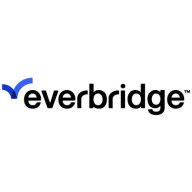

Everbridge IT Alerting and Opsgenie both compete in the incident management solutions category primarily for IT teams. Opsgenie seems to have the upper hand with its system integration and flexibility, making it ideal for tech-savvy teams.
Features: Everbridge IT Alerting includes automated alerting, escalation capabilities, and comprehensive communication tools. Opsgenie provides strong integration options into various DevOps tools, easy on-call scheduling, and real-time alerting, making it a versatile option for complex IT environments.
Room for Improvement: Everbridge needs improved integration capabilities and more flexibility in its communication modules. Enhancements in user interface design and reduced setup complexity would also be beneficial. Opsgenie could improve its initial setup time, provide more customer support during deployment, and expand its reporting features.
Ease of Deployment and Customer Service: Everbridge IT Alerting has a straightforward deployment process with extensive support, suitable for organizations prioritizing quick setup. Opsgenie offers versatile deployment options that require more setup time but provide greater control and adaptability for technically equipped teams.
Pricing and ROI: Everbridge IT Alerting has a higher setup cost but offers comprehensive communication capabilities that can result in long-term ROI for large organizations. Opsgenie offers a competitively priced model with strong integration capabilities, appealing to organizations seeking significant returns on technological investments.
| Product | Market Share (%) |
|---|---|
| Opsgenie | 10.9% |
| Everbridge IT Alerting | 6.5% |
| Other | 82.6% |

| Company Size | Count |
|---|---|
| Small Business | 3 |
| Large Enterprise | 22 |
| Company Size | Count |
|---|---|
| Small Business | 3 |
| Midsize Enterprise | 5 |
| Large Enterprise | 6 |
Everbridge IT Alerting is a closed-loop cyber security and incident response automation solution that helps organizations respond to IT Incidents faster and improve teams’ response performance by automating communication, collaboration, and orchestration processes for ServiceOps, IT Security Ops, DevOps, and Disaster Recovery Ops. As a FedRamp-certified solution, IT Alerting capabilities include in-depth scheduling/calendars, interactive & analytical reporting, on-call scheduling, automated escalation, response workflow automation, recording, and much more. The solution is offered as a cloud service based on the secure, highly available, resilient, and globally scalable Everbridge CEM platform.
Learn why 5,400+ enterprise customers trust Everbridge (NASDAQ (EVBG)) with their IT Response Automation Management and IT Alerting solutions; visit ITAlerting.com to learn more or request a demo.
Need Integration with your ITOM, ITSM, SIEM tools?
Plug Everbridge IT Alerting directly into your ITOM, ITSM, SIEM, IT Monitoring tools including ServiceNow or BMC Remedy with our certified, two-way integrations and automatically contact the on-call IT team members, launch conference bridges and automatically escalate to the senior personnel in case of major IT incidents.
Users are empowered to manage their contact details and notification preferences in a single location, hence the administrators don't have to maintain this information at each application. OpsGenie is a cloud based service with reliable, distributed architecture that is replicated in multiple data centers, and monitored around the clock. The lifecycle for each alert, notifications, actions taken by users, are recorded and reported to enable admins to easily analyze what happened. No more wasting time, digging up log files. No more finger pointing.
Most enterprises employ multitude of tools for IT management: for monitoring, ticketing, configuration and change management, etc. Although each of these tools may be individually capable of sending notifications via email or SMS, it is a burden for administrators to maintain the same information in each of these multiple, disparate systems.
OpsGenie enables organizations to consolidate notification management into a single management system. OpsGenie enables users to maintain their own contact details and preferences in one place, eliminating duplication of data, reducing administrative overhead.
We monitor all IT Alerting and Incident Management reviews to prevent fraudulent reviews and keep review quality high. We do not post reviews by company employees or direct competitors. We validate each review for authenticity via cross-reference with LinkedIn, and personal follow-up with the reviewer when necessary.